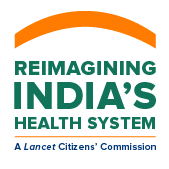In Conversation:- Radhika Gore, Director of Research at the Family Health Centers at NYU Langone (FHC)
February 13, 2022

My interests include political analysis of health systems and investigating how social and organizational factors affect health care delivery and quality. During and after completing a masters in international affairs, I worked with UNICEF and other agencies. Part of that time was spent in East Asia for assignments at UNICEF’s regional and country offices. There I observed not just the technical aspects of improving education or health outcomes, but also the challenges of institution-building, of implementing policy reform locally, of introducing new practices and decision-making processes in decentralizing government systems with growing economies. The link between politics and development was clear to see, and to me seemed especially salient and complex in the health sector, where one had to grapple with demographic transitions, shifting burdens of disease (with the rise in chronic disease), and achieving equity under market-driven imperatives. When I later conducted doctoral research in India, questions about policy, politics, markets, institutions, collective action, and health care provision were central to my work.
I was thrilled to be invited to serve as a Fellow in the governance stream of the Commission. I am contributing to reviewing literature on health system governance and helping to design fieldwork on governance-related themes. These themes may cover, for example, providers’ perspectives on accountability and their thoughts about public service and about the private sector in medical care. I’m also interested in how state and societal actors perceive each other, and how these perceptions are formed and reinforced through routine everyday interactions, the interactions in turn being a product of institutional histories. To improve accountability and quality of services, it may not be enough to get incentives right; we have to also consider the perspectives, narratives, norms, and public reputations that precede and foreshadow and can complicate everyday encounters in a health system.
I’ll offer some thoughts that struck me after listening to a recent panel on the Union Budget co-organized by the Commission. One challenge is orienting the private sector to work together towards public health goals. Another challenge seems related to a puzzle about the potential for performance: why is it that the health system seems able to operate in mission mode, e.g., rolling out vaccinations at scale, but in the main shows inertia and low performance? A related point is absorptive capacity: some states appear less capable of spending money allocated to them, but we need initial investments to create favorable conditions for performance and efficiency of spending. These questions concern both finance and governance, and some key challenges for achieving UHC lie at this intersection.
I hope that among other things, the discussions, analysis, and fieldwork fostered by the Commission will surface underexplored aspects of present health system challenges and suggest and frame novel ways of looking at the challenges. I hope both the public and policymakers come to recognize health care not just as a transaction, an exchange of medical advice or treatment for some form of remuneration, but also in terms of social action, meaning that it is shaped by norms, collective understandings, and institutional histories. Once we see this, we may expand the repertoire of analytic tools and policy solutions we bring to bear upon the challenge of improving health equity.
